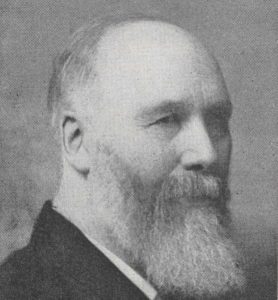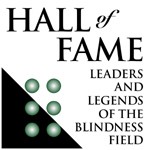Ambrose M. Shotwell
Inducted 2021

Ambrose Milton Shotwell (1853-1930) was born in New York. His family soon realized that he could see only “sunshine and other bright lights,” a condition later ascribed to “optic nerve atrophe.” At fifteen, Shotwell was enrolled in the first class at the New York State School for the Blind in Batavia. He blossomed academically and graduated in 1873 as valedictorian. As Warren Bledsoe described him, Shotwell was a “benign agitator,” filled with ambitions for “America’s blind people”— and he acted on those aspirations. In 1879, he co-drafted a bill—House Bill No. 13. The bill became law, founding the Michigan School for the Blind in 1880. Returning to teaching, Shotwell taught at the Arkansas School for the Blind in Little Rock from 1880—1883. In 1892, he studied piano tuning at the Michigan School for the Blind but ended up the “school printer and official stereotype-maker,” and remained in that position for eleven years.
In 1895, he joined a group of colleagues in St. Louis, alarmed about the lack of opportunities available for people who were blind in America. An even larger group representing additional states met later to create the American Blind People’s Higher Education and General Improvement Association. In 1902, Shotwell presented a paper at the second biennial conference of the Michigan Blind People’s Welfare Association, which he had helped establish in 1900. His paper led directly to the establishment of the Michigan Employment Institution for the Blind in 1903. Shotwell was made Assistant Superintendent of the institution as well as Librarian, positions he held until his retirement in 1927. In 1905, at a meeting hosted by Shotwell, the American Blind People’s Higher Education and General Improvement Association retooled itself into the American Association of Workers for the Blind (AAWB), a precursor of today’s AER. Shotwell served as Chair of the Committee on Revision of the Constitution and thus helped shape the new association and the future of professionalism in the blindness field.
